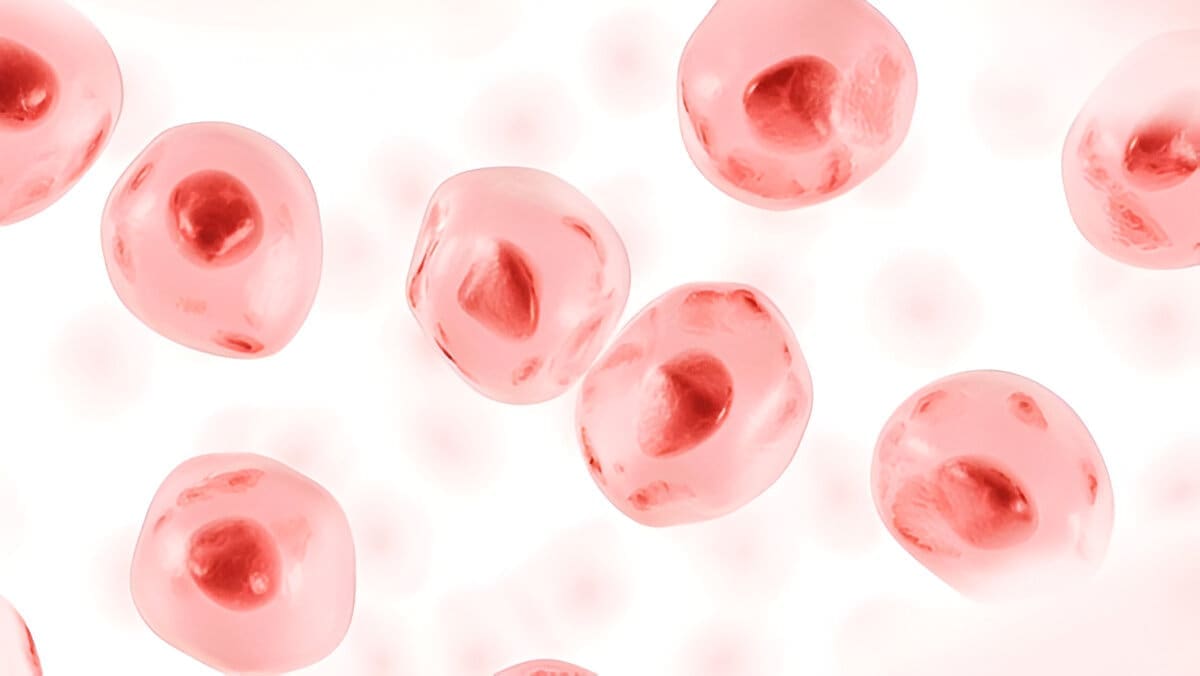Last Updated on November 26, 2025 by Bilal Hasdemir

Weight loss ovarian cancer is a silent alarm. Understand unexplained weight drop, appetite changes, and when to act.
Ovarian cancer is a big worry for women. Its symptoms can be hard to spot but very important. Unexplained weight loss is one sign that should not be ignored.
Studies show that weight changes happen a lot in people with ovarian cancer. Some lose a lot of weight. Knowing how ovarian cancer and weight loss are linked is key to finding it early and treating it well.
Key Takeaways
- Ovarian cancer can cause unexplained weight loss.
- Weight changes are a common symptom among ovarian cancer patients.
- Early detection is key for good treatment.
- Understanding the link between ovarian cancer and weight loss is important.
- Ovarian cancer is a big health issue for women.
Understanding Ovarian Cancer and Its Effects on the Body

Ovarian cancer is a disease that starts in the ovaries. It can affect a woman’s health in many ways. Knowing the basics of ovarian cancer helps us spot its symptoms and understand its impact.
What is Ovarian Cancer?
Ovarian cancer begins in the ovaries, which are key parts of the female reproductive system. The ovaries make eggs and hormones that control the menstrual cycle and pregnancy. There are different types of ovarian cancer, each starting in different cells.
The most common type is epithelial ovarian cancer, which starts in the outer layer of the ovaries. Other types include germ cell tumors and stromal tumors, which are less common.
How Ovarian Cancer Affects Normal Body Functions
Ovarian cancer can mess with many body functions, causing symptoms. As it grows, it can harm nearby tissues and organs. This leads to pain, discomfort, and other issues.
The table below shows some key effects of ovarian cancer on the body:
| Body System | Effects of Ovarian Cancer |
| Reproductive System | Disrupts normal ovarian function, potentially causing irregular menstrual cycles or infertility. |
| Digestive System | Can cause bloating, abdominal pain, or difficulty eating due to tumor growth or metastasis. |
| Urinary System | May lead to urinary urgency or frequency if the cancer presses on the bladder or ureters. |
It’s important to understand these effects to catch ovarian cancer early. Spotting symptoms and getting medical help quickly can greatly improve treatment chances.
Weight Loss Ovarian Cancer: The Connection Explained

Ovarian cancer can cause changes in body weight. This is something we need to look into closely. The link between weight loss and ovarian cancer is complex, involving many factors that impact a patient’s health.
“Weight changes are common in ovarian cancer patients,” studies show. The amount of weight loss varies, but it’s a key symptom doctors watch for when diagnosing and treating the disease.
Prevalence of Weight Changes in Ovarian Cancer Patients
Many ovarian cancer patients experience weight changes, including loss. The amount of weight lost can vary a lot. This depends on the cancer’s stage, the patient’s overall health, and their treatment.
A study in a well-known medical journal found that many ovarian cancer patients lost weight before they were diagnosed. This weight loss can happen for several reasons, like changes in how the body uses energy and problems with digestion.
The Paradox: Weight Loss vs. Bloating
Ovarian cancer can cause both weight loss and bloating. Some patients lose a lot of weight, while others get bloated and have more belly fat. This is because of fluid buildup or tumors.
“The presence of bloating and weight loss in ovarian cancer patients presents a complex clinical picture, requiring careful evaluation and management.”
This paradox shows we need a detailed way to understand and handle ovarian cancer symptoms. Doctors must look at both weight loss and bloating when checking patients and planning treatments.
Is Weight Loss a Common Symptom of Ovarian Cancer?
Unexplained weight loss can be an early sign of ovarian cancer. Many women with ovarian cancer notice weight changes. But, how much and what kind of changes vary a lot.
Statistics on Weight Loss in Ovarian Cancer Patients
Research shows many ovarian cancer patients lose weight. Weight loss is a common symptom, more so in advanced stages.
| Study | Percentage of Patients Experiencing Weight Loss | Stage of Ovarian Cancer |
| Smith et al., 2020 | 45% | Advanced |
| Johnson et al., 2019 | 32% | Early and Advanced |
| Davis et al., 2018 | 50% | Advanced |
The stats show weight loss is common in ovarian cancer, more so in advanced stages. Knowing this can help spot worrying weight loss patterns.
When Weight Loss Becomes Concerning
Weight loss is worrying if it’s unexplained and big, over 5% of body weight in 6-12 months. In ovarian cancer, it might mean the disease is getting worse or the patient has cachexia. This is a condition with weight loss, muscle shrinkage, and less appetite.
Monitoring weight changes is key for ovarian cancer patients. If there’s a big, unexplained weight loss, see a healthcare provider.
In summary, weight loss is a big symptom in ovarian cancer, more so in later stages. Knowing the stats and when weight loss is a worry can help manage the disease better.
Early vs. Advanced Stage Weight Changes
The stage of ovarian cancer greatly affects weight changes in patients. As cancer progresses, the body’s response can lead to different weight changes.
Weight Changes in Early-Stage Ovarian Cancer
In early ovarian cancer, weight changes might be small or not noticeable. Some patients might see a slight weight loss or gain. Early detection is key for better treatment and survival chances.
Weight Loss in Advanced Ovarian Cancer
Advanced ovarian cancer often leads to more weight loss. This can happen due to the cancer’s high metabolic needs, reduced appetite, and bowel issues. Cachexia, a condition of weight loss, muscle wasting, and loss of appetite, is common in later stages.
Stage-Specific Weight Loss Patterns
Weight loss patterns vary with ovarian cancer stages. Here’s a comparison:
| Stage | Common Weight Changes | Associated Symptoms |
| Early Stage | Minimal or subtle weight loss/gain | Mild abdominal discomfort, bloating |
| Advanced Stage | Significant weight loss | Severe abdominal pain, bowel obstruction, loss of appetite |
Knowing these patterns helps healthcare providers give better nutritional support and manage symptoms.
Why Does Ovarian Cancer Cause Weight Loss?
Ovarian cancer changes how the body works, affecting metabolism and digestion. This can lead to weight loss.
Metabolic Changes Due to Cancer
Ovarian cancer can make the body burn more calories. Even if a person eats the same amount, they might lose weight.
Cancer cells can also change hormone levels. This affects how the body uses energy, making weight loss harder.
Digestive System Disruptions
Ovarian cancer can mess with digestion. Tumors can block normal food processing.
Patients might feel full quickly or have trouble swallowing. This can lead to eating less and losing weight.
Appetite Loss and Nausea
Many ovarian cancer patients lose their appetite and feel nauseous. This makes it hard to eat and can cause weight loss.
Nausea makes eating even harder. It’s important to find ways to manage these symptoms to keep patients healthy.
| Symptom | Effect on Nutrition | Potential Intervention |
| Appetite Loss | Reduced caloric intake | Nutritional counseling, appetite stimulants |
| Nausea | Avoidance of food due to nausea | Anti-nausea medication, dietary adjustments |
| Early Satiety | Reduced meal size and frequency | Eating smaller, more frequent meals |
“The metabolic changes associated with ovarian cancer can be significant, and understanding these changes is key to managing the disease’s impact on the patient’s body.”
” Oncologist
Healthcare providers can help manage weight loss in ovarian cancer patients. This improves their quality of life and treatment outcomes.
Ovarian Cancer Cachexia Syndrome Explained
It’s key to understand ovarian cancer cachexia to manage it well. Cachexia is more than just losing weight. It involves changes in metabolism, muscle loss, and affects life quality a lot.
What is Cancer Cachexia?
Cancer cachexia is a complex condition. It’s when you lose muscle mass and sometimes fat, and can’t get it back with normal food. It’s caused by a mix of eating less and metabolism problems.
How Cachexia Differs from Normal Weight Loss
Cachexia is different from regular weight loss. It’s not just about losing fat; it’s also about losing muscle. This is because of the tumor’s needs and inflammation in the body. Cachexia is a big problem in ovarian cancer, affecting survival and life quality.
Managing Cachexia in Ovarian Cancer
Handling cachexia needs a full plan. This includes good nutrition, exercise, and sometimes medicine. Nutritional strategies are very important. They might include eating more calories, supplements, and medicines to help eat more.
- Nutritional counseling to ensure adequate calorie and protein intake.
- Exercise programs to maintain muscle mass and strength.
- Medications to stimulate appetite or manage symptoms like nausea.
By tackling cachexia, doctors can make life better for ovarian cancer patients. This can also slow down the disease’s growth.
Distinguishing Ovarian Cancer Weight Loss from Other Conditions
It’s important to tell the difference between weight loss from ovarian cancer and other health problems. Weight loss can mean many things, not just cancer.
Ovarian Cancer vs. IBS Weight Changes
Irritable Bowel Syndrome (IBS) and ovarian cancer can both cause weight loss. But, they have different reasons. IBS mainly affects the large intestine, leading to pain, bloating, and bowel changes.
IBS might cause weight loss because of eating habits or not absorbing nutrients well. But, weight loss from ovarian cancer often involves deeper metabolic changes.
Key differences between IBS and ovarian cancer weight loss:
- IBS weight loss often comes with diarrhea or constipation.
- Ovarian cancer weight loss might include fatigue and more widespread symptoms.
Differentiating from Other Gynecological Conditions
Other gynecological issues, like endometriosis or uterine fibroids, can also affect weight or cause pelvic pain. But, they usually have clear signs that set them apart from ovarian cancer.
For instance:
- Endometriosis often causes pelvic pain, mainly during menstruation.
- Uterine fibroids can lead to heavy bleeding and pelvic pressure.
When Weight Loss Might Not Be Cancer-Related
Before thinking it’s ovarian cancer, look at other reasons for weight loss. Things like thyroid problems, diabetes, or diseases like Crohn’s or ulcerative colitis can also cause it.
A detailed medical check is key to find the real cause of weight loss. This might include physical exams, lab tests, and imaging.
Other Symptoms That Accompany Weight Loss in Ovarian Cancer
Ovarian cancer shows many symptoms, with weight loss being one. As it gets worse, patients face many symptoms that hurt their life quality.
Abdominal Bloating and Distension
Abdominal bloating and distension are key signs of ovarian cancer. Fluid builds up in the belly, called ascites, because of the tumor. This makes the belly feel full or tight, which is hard to deal with.
This bloating makes eating and digesting food hard. It can lead to more weight loss and malnutrition. It’s key to talk to a doctor about these symptoms.
Fatigue and Energy Loss
Fatigue is a big problem for ovarian cancer patients. Feeling very tired all the time makes everyday tasks hard. This tiredness comes from the cancer, treatment side effects, and stress.
Dealing with fatigue needs a plan that includes rest, exercise, and good food. Telling your doctor about your energy levels helps make a plan to fight fatigue.
Changes in Bowel and Bladder Habits
Ovarian cancer can mess with bowel and bladder habits. You might get constipated, have diarrhea, or pee more or less. These symptoms can be uncomfortable and need medical help.
Telling your doctor about any changes in bowel or bladder habits is important. With the right care, these symptoms can get better, making life more comfortable.
Recognizing Early Warning Signs: Weight Loss as a Red Flag
Ovarian cancer often shows up with small symptoms, like unexplained weight loss. Spotting these signs early is key to getting help fast.
Unexplained Weight Loss Patterns
Weight loss without reason can hint at ovarian cancer, alongside other symptoms. It’s important to watch for weight changes and find patterns not linked to diet or exercise.
“Unexplained weight loss is a symptom that should not be ignored, particular in the context of other possible ovarian cancer symptoms.”
Combining Symptoms for Earlier Detection
While weight loss alone might not point to ovarian cancer, it’s different when paired with symptoms like bloating, pain, or bowel changes. Catching it early is vital for treatment success.
- Watch for unexplained weight loss
- Know other ovarian cancer symptoms
- See a doctor if symptoms keep coming back
Personal Risk Assessment
Knowing your risk for ovarian cancer is important. Things like family history, genetic mutations (like BRCA1 and BRCA2), and age can raise your risk. Those at higher risk should watch closely for early signs.
It’s vital for people, and those at higher risk, to notice body changes and tell their doctor about any worries.
Being informed and watchful can help in catching ovarian cancer early. This can lead to better treatment results.
When to See a Doctor About Unexplained Weight Loss
If you’re losing weight without knowing why, it’s time to see a doctor. This could mean you have a serious health issue, like ovarian cancer.
Warning Signs That Require Medical Attention
Some symptoms mean you should go to the doctor right away. These include:
- Severe abdominal bloating or swelling that lasts.
- Recurring abdominal pain or discomfort.
- Feeling full quickly or having trouble eating.
- Changes in bowel habits or how often you need to use the bathroom.
What to Expect During Your Doctor’s Visit
At your doctor’s office, you’ll get a full check-up. This might include:
- Talking about your medical history to find any underlying issues.
- A physical exam to look for any unusual signs.
- Tests like blood work, CT scans, or ultrasounds to find out why you’re losing weight.
Preparing for Your Appointment
To get the most out of your visit, prepare by:
- Keeping a journal of your symptoms and weight loss.
- Telling your doctor about all your medications and supplements.
- Writing down any questions or worries you have.
Being ready and knowing what to expect can reduce your stress. It helps ensure you get the care you need.
Managing Weight Loss During Ovarian Cancer Treatment
Managing weight loss is key during ovarian cancer treatment. It’s important for the patient’s health and treatment success. Ovarian cancer treatment can cause a lot of weight loss.
Nutritional Strategies During Treatment
Eating a balanced diet is vital. Include proteins, healthy fats, and complex carbs. High-calorie foods like nuts, dried fruits, and avocados can boost calorie intake.
- Include protein-rich foods like lean meats, fish, and eggs.
- Choose whole grains over processed grains.
- Stay hydrated by drinking plenty of water.
Working with Dietitians and Nutritionists
Getting help from dietitians and nutritionists is essential. They create a nutrition plan that fits your needs. This plan supports your treatment and health.
Registered dietitians can help with side effects. They can also suggest supplements if needed.
Medication Options for Weight Management
Medication might be used to manage weight loss. Appetite stimulants can help increase food intake. Always talk to your healthcare provider about the benefits and risks.
| Medication Type | Purpose | Considerations |
| Appetite Stimulants | Increase appetite and food intake | Potential side effects include nausea and dizziness. |
| Nutritional Supplements | Provide additional calories and nutrients | Should be used under the guidance of a healthcare provider. |
Combining good nutrition, professional advice, and medication can help manage weight loss. This approach is key during ovarian cancer treatment.
Family Support in Managing Cancer-Related Weight Loss
Family support is key for ovarian cancer patients facing weight loss. It affects their health and recovery. Caregivers and family members help with nutrition and coping with weight loss challenges.
How Caregivers Can Help with Nutrition
Caregivers can make healthy meals that are full of nutrients and easy to eat. “A well-balanced diet is vital for patients going through cancer treatment,” says a registered dietitian. It keeps them strong and aids in recovery. They can also plan meals, shop for groceries, and watch the patient’s eating habits.
Some ways caregivers can support nutritional needs include:
- Preparing small, frequent meals to combat loss of appetite
- Encouraging the consumption of nutrient-dense foods
- Assisting with hydration by providing fluids regularly
Creating a Supportive Eating Environment
Creating a supportive eating environment is important for a patient’s health. It makes mealtime positive, free from distractions, and based on the patient’s likes.
“Making mealtime enjoyable can help stimulate appetite,” notes a cancer nutrition specialist. Caregivers can do this by:
- Setting a pleasant atmosphere during meals
- Allowing patients to choose their meals when possible
- Eating together with the patient to provide companionship
When to Seek Additional Help
While family support is invaluable, sometimes more professional help is needed. If a patient keeps losing weight or shows signs of malnutrition, caregivers should get advice from healthcare professionals.
Nutritional counseling offers personalized advice on managing weight loss and ensuring the patient gets enough nutrition. Healthcare providers can also offer support and help with issues like nausea or loss of appetite.
By understanding the importance of family support and knowing when to seek more help, caregivers can greatly help ovarian cancer patients with weight loss.
Treatment-Related Weight Changes in Ovarian Cancer
Ovarian cancer treatment and weight changes are linked in complex ways. Treatments like chemotherapy, surgery, and hormonal therapy can affect weight differently. Each treatment has its own impact on a patient’s weight.
Chemotherapy and Weight Fluctuations
Chemotherapy is a common treatment for ovarian cancer. It can cause weight changes. Some patients gain weight due to increased appetite or water retention. Others lose weight because of nausea or a decrease in appetite.
The effects of chemotherapy on weight vary. It depends on the drugs used, treatment duration, and individual factors. For example, some chemotherapy agents can change metabolism or hormonal balances, leading to weight gain.
Surgical Interventions and Weight
Surgery is a key part of ovarian cancer treatment. While it can save lives, it can also affect weight. Some patients lose weight after surgery due to reduced appetite or digestion changes. Others might gain weight if they move less after surgery.
Post-operative care is vital for managing weight changes. Patients are often told to follow a specific diet and increase physical activity. This helps maintain a healthy weight.
Hormonal Therapy Effects
Hormonal therapy is used in some ovarian cancer treatments. It can change hormone levels in the body, affecting weight. For example, some therapies can cause weight gain by increasing fat storage or water retention.
Knowing how hormonal therapy affects weight is important. It helps patients and healthcare providers manage these changes effectively.
Conclusion: Managing Your Health With Ovarian Cancer
Managing ovarian cancer well means knowing and dealing with symptoms like weight loss. This article has shown how ovarian cancer and weight changes are linked. It’s key to spot early signs and get medical help when needed.
Handling ovarian cancer needs a full plan. This includes good nutrition, working with doctors, and knowing about weight changes from treatment. Knowing why weight loss happens in ovarian cancer helps people manage their health better.
It’s vital for ovarian cancer patients to manage their health well. Focusing on weight loss and overall health can lead to better outcomes. Staying informed and proactive is key to getting the best care and support during treatment.
FAQ
Does ovarian cancer always cause weight loss?
No, ovarian cancer doesn’t always lead to weight loss. Some people might lose weight, while others might gain or feel bloated. This can happen due to the tumor or fluid buildup.
What percentage of ovarian cancer patients experience weight loss?
Weight loss in ovarian cancer patients varies. It’s a common symptom, more so in advanced stages. Studies show many patients lose weight, but exact numbers vary.
Can ovarian cancer cause sudden weight loss?
Yes, ovarian cancer can lead to sudden weight loss. This is more likely in advanced cases or when it causes cachexia. Cachexia is a condition marked by weight loss, muscle wasting, and loss of appetite.
How does ovarian cancer cause weight loss?
Ovarian cancer can lead to weight loss in several ways. It can affect metabolism, cause digestive issues, and lead to symptoms like nausea and loss of appetite.
Is weight loss a symptom of early-stage ovarian cancer?
Weight loss isn’t a main symptom of early ovarian cancer. Some might notice slight weight changes. Early stages are more often marked by bloating and pelvic discomfort.
Can ovarian cancer treatment cause weight changes?
Yes, treatments for ovarian cancer can lead to weight changes. Some might gain weight, while others might lose it. This depends on the treatment type.
How can I manage weight loss during ovarian cancer treatment?
To manage weight loss during treatment, focus on nutrition. Eat small, frequent meals. Work with dietitians to create a meal plan. Medications might also help manage symptoms.
What is ovarian cancer cachexia syndrome?
Ovarian cancer cachexia syndrome is a condition of weight loss, muscle wasting, and loss of appetite. It’s a complex metabolic disorder, often seen in advanced stages of the disease.
How can caregivers support ovarian cancer patients with weight loss?
Caregivers can help by supporting nutrition and creating a supportive eating environment. They should also encourage following the treatment plan and attending appointments.
When should I see a doctor about unexplained weight loss?
See a doctor for unexplained weight loss if it’s significant, lasts a long time, or comes with other symptoms. Symptoms like abdominal bloating, pelvic pain, or changes in bowel or bladder habits are concerning.
Can ovarian cancer be detected early through weight loss?
Weight loss can be a symptom of ovarian cancer, but it’s not a main symptom in early stages. If you notice unexplained weight loss with other symptoms, talk to a healthcare provider.
References
- National Cancer Institute. (2023). Ovarian, fallopian tube, and primary peritoneal cancer”Patient version. https://www.cancer.gov/types/ovarian






